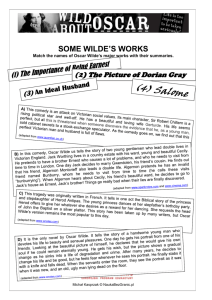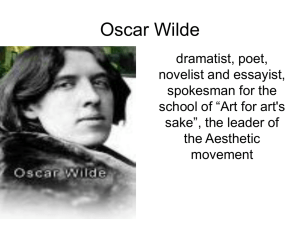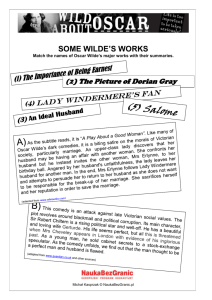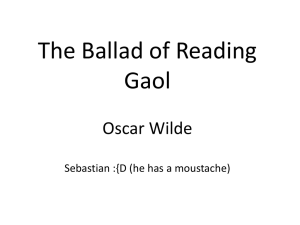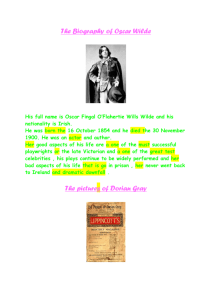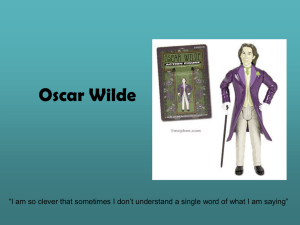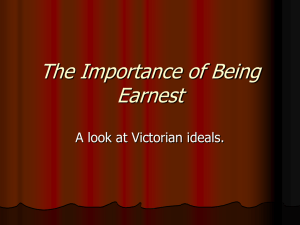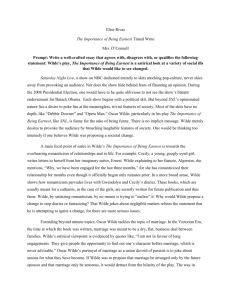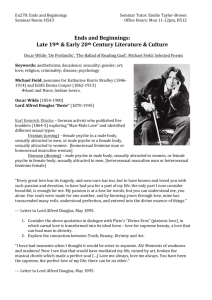The Importance of Being Earnest 2.doc
advertisement
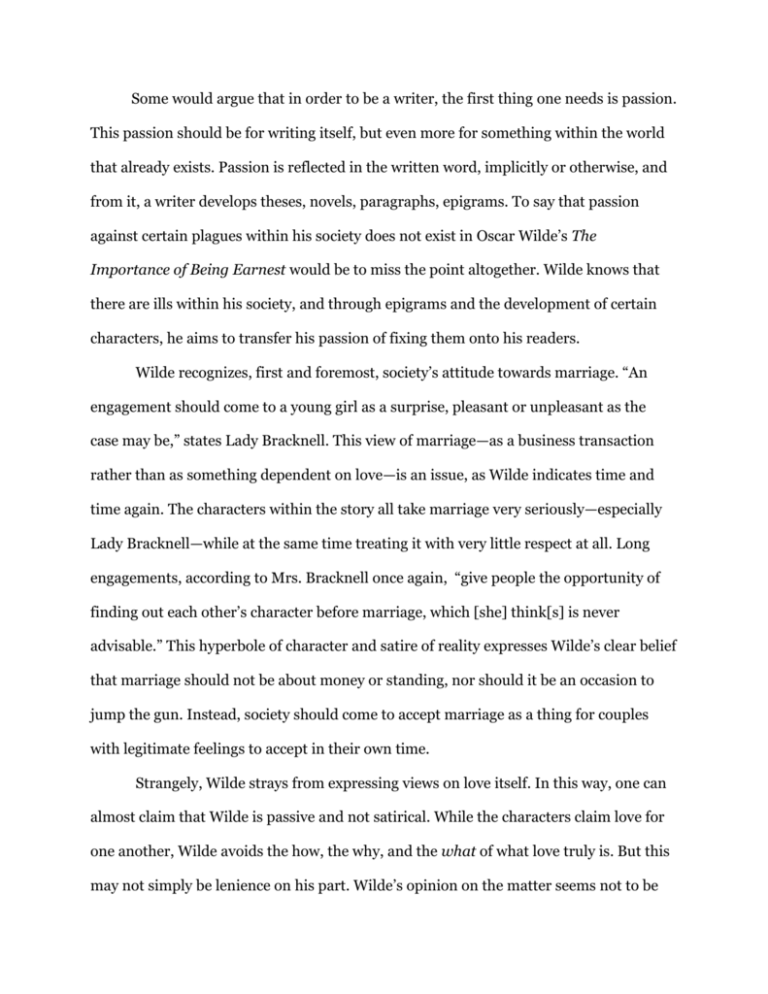
Some would argue that in order to be a writer, the first thing one needs is passion. This passion should be for writing itself, but even more for something within the world that already exists. Passion is reflected in the written word, implicitly or otherwise, and from it, a writer develops theses, novels, paragraphs, epigrams. To say that passion against certain plagues within his society does not exist in Oscar Wilde’s The Importance of Being Earnest would be to miss the point altogether. Wilde knows that there are ills within his society, and through epigrams and the development of certain characters, he aims to transfer his passion of fixing them onto his readers. Wilde recognizes, first and foremost, society’s attitude towards marriage. “An engagement should come to a young girl as a surprise, pleasant or unpleasant as the case may be,” states Lady Bracknell. This view of marriage—as a business transaction rather than as something dependent on love—is an issue, as Wilde indicates time and time again. The characters within the story all take marriage very seriously—especially Lady Bracknell—while at the same time treating it with very little respect at all. Long engagements, according to Mrs. Bracknell once again, “give people the opportunity of finding out each other’s character before marriage, which [she] think[s] is never advisable.” This hyperbole of character and satire of reality expresses Wilde’s clear belief that marriage should not be about money or standing, nor should it be an occasion to jump the gun. Instead, society should come to accept marriage as a thing for couples with legitimate feelings to accept in their own time. Strangely, Wilde strays from expressing views on love itself. In this way, one can almost claim that Wilde is passive and not satirical. While the characters claim love for one another, Wilde avoids the how, the why, and the what of what love truly is. But this may not simply be lenience on his part. Wilde’s opinion on the matter seems not to be that love is a societal ill, in and of itself, but the way society treats it may be, as he expresses in his satire of the view on marriage. Even clearer than Wilde’s call to change his society’s view on marriage is his spotlight on privilege. Wilde defines privilege through his characters’ sexism and through their classism. “The only way to behave to a woman is to make love to her if she is pretty,” says Algernon, “and to someone else if she is not.” This kind of attitude towards the opposite sex is prevalent for both sexes throughout the book. A similar disdain towards lower classes—“Never speak disrespectfully of society, Algernon. Only those who can’t get into it do that.”—and towards those with less education—“Ignorance is like a delicate exotic fruit; touch it and the bloom is gone”—is expressed time and time again through Wilde’s characters. He draws on this satire to express his view that bigotry and excessive privilege are detrimental towards society, despite his society’s apparent passiveness [sic] towards both. Perhaps even more important than passion is insight. Wilde’s own insight—his observations of how the world around him works—leads to opinion, which leads to passion, which leads to his expression of this passion within The Importance of Being Earnest. Whether Wilde expects society to fully understand his point is unclear, but the purpose of satire (to draw attention to an issue) is undoubtedly fulfilled.
